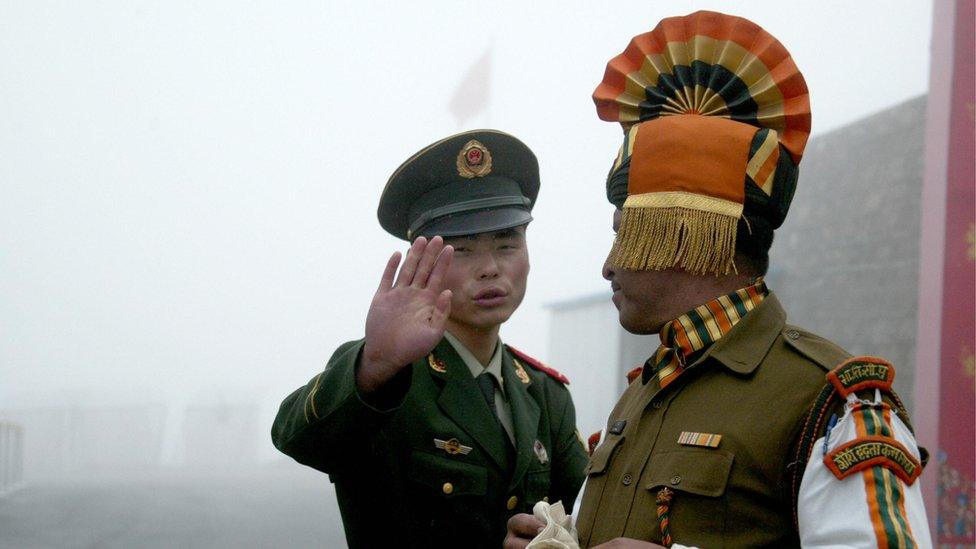India and China troops clash along Himalayan border
- Published

Tension escalates again between India and China along disputed border
A confrontation occurred between Indian and Chinese soldiers along a disputed border in the western Himalayas, Indian officials said on Tuesday.
The PTI news agency said soldiers threw stones, causing minor injuries to both sides, as Chinese troops tried to enter Indian territory near the Pangong lake.
Beijing maintains that their soldiers were inside Chinese territory.
The two countries are also locked in an impasse in the Doklam area, which borders China, India and Bhutan.
PTI quoted army officials as saying that in the latest confrontation, soldiers had to form a human chain to prevent an incursion by Chinese forces into territories claimed by India and located near the country's Ladakh region. China claims the territories as its own.
An Indian official told the BBC that he could neither confirm nor deny media reports, but said "such incidents do happen," adding that "this isn't the first time that something like this has happened."
China's foreign ministry said in an official statement that "the Indian side must immediately and unconditionally withdraw all personnel and equipment from the Chinese soil", while reiterating that its troops had been inside Chinese territory when the confrontation took place.
An official statement from India's foreign ministry said that "there is no commonly delineated Line of Actual Control (LAC) in the border areas between India and China."
It added that differences in perception of the LAC have caused situations on the ground that could have been avoided if there was a consensus on the border lines.
The latest skirmish occurred even as the two armies continued a two-month stand-off further east, near a plateau known as Doklam in India and Donglang in China.
Since the confrontation began in June, each side has reinforced its troops and called on the other to retreat.
The two nations fought a war over the border in 1962 and disputes remain unresolved in several areas, which causes tensions to escalate from time to time.